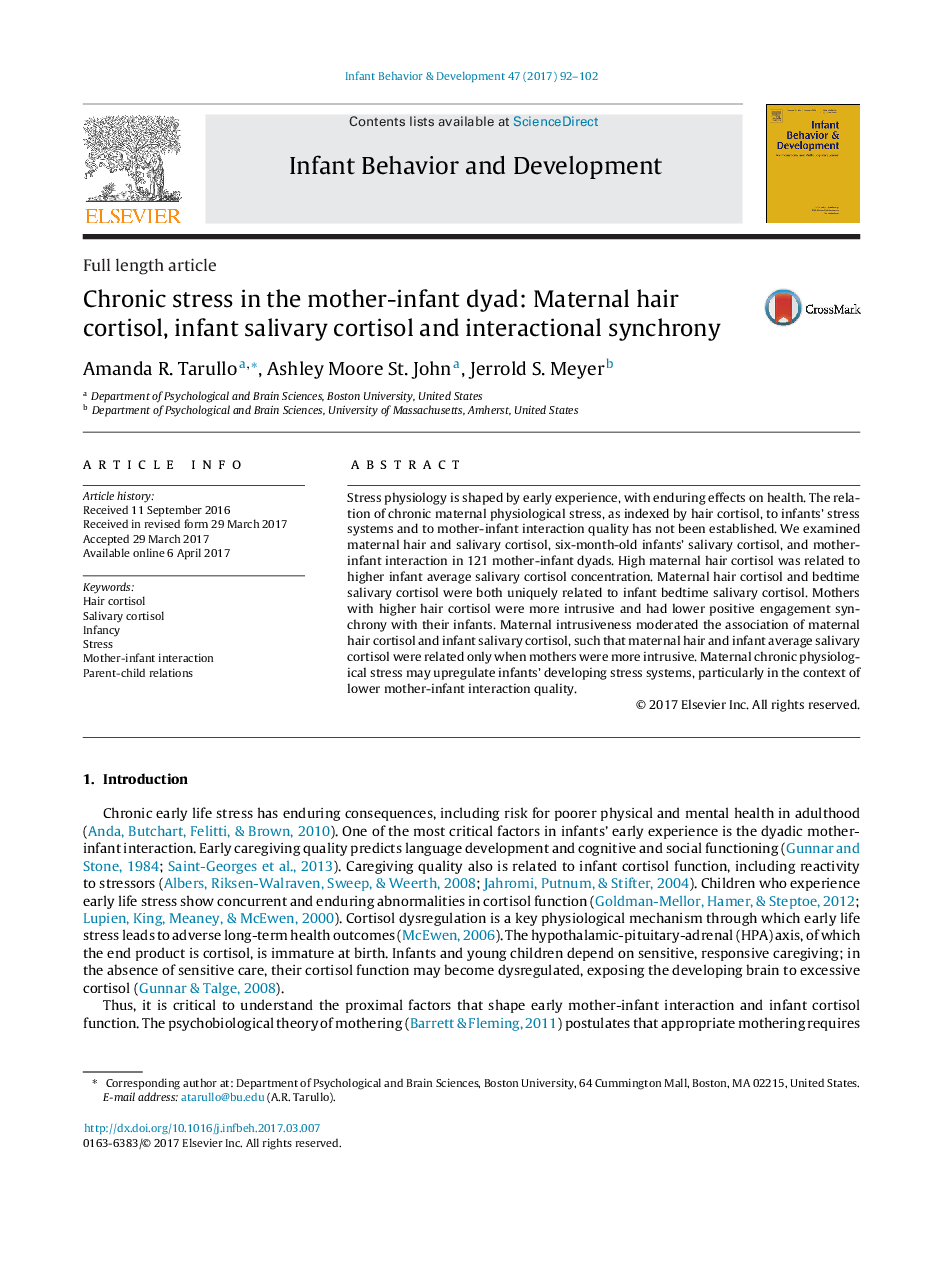| Article ID | Journal | Published Year | Pages | File Type |
|---|---|---|---|---|
| 5039833 | Infant Behavior and Development | 2017 | 11 Pages |
â¢Mothers' hair cortisol strongly relates to infants' salivary cortisol levels.â¢Mothers with high hair cortisol have less sensitive interactions with their infants.â¢Maternal chronic biological stress matters for infant stress and for caregiving.
Stress physiology is shaped by early experience, with enduring effects on health. The relation of chronic maternal physiological stress, as indexed by hair cortisol, to infants' stress systems and to mother-infant interaction quality has not been established. We examined maternal hair and salivary cortisol, six-month-old infants' salivary cortisol, and mother-infant interaction in 121 mother-infant dyads. High maternal hair cortisol was related to higher infant average salivary cortisol concentration. Maternal hair cortisol and bedtime salivary cortisol were both uniquely related to infant bedtime salivary cortisol. Mothers with higher hair cortisol were more intrusive and had lower positive engagement synchrony with their infants. Maternal intrusiveness moderated the association of maternal hair cortisol and infant salivary cortisol, such that maternal hair and infant average salivary cortisol were related only when mothers were more intrusive. Maternal chronic physiological stress may upregulate infants' developing stress systems, particularly in the context of lower mother-infant interaction quality.
